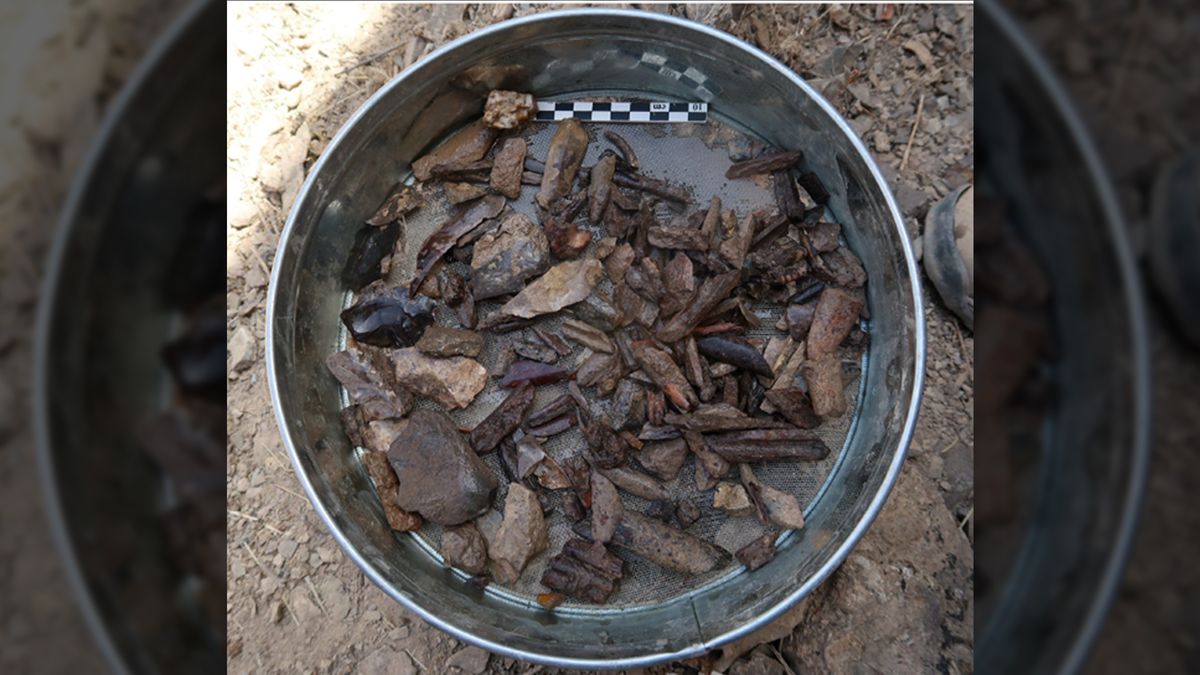Dingoes are found across most of the Australian continent
Dominic Jeanmaire/Getty Images/iStockphoto
Analysis of ancient DNA from dingoes suggests that Australia’s native wild dogs arrived in two waves of migration between 3000 and 8000 years ago and show little evidence of interbreeding with domestic dogs.
Sally Wasef at Queensland University of Technology in Australia and her colleagues examined 42 ancient dingo specimens. They ultimately obtained nine full genomes, including the oldest Australian genome ever sequenced for any species, as well as mitochondrial DNA from 16 animals.
The retrieved DNA ranged in age from 400 to 2700 years old and came from across the continent. The researchers compared this ancient data with DNA from 11 modern dingoes, six New Guinea singing dogs and 372 domestic dogs, wolves and other canids that had been obtained by previous studies.
The analysis confirms that the two main Australian populations of dingoes – one concentrated on the east coast and another on the west – had already diverged by at least 3000 years ago. The east coast dingoes are more closely related to New Guinea singing dogs than they are to the western dingoes, possibly indicating two distinct migrations of dingoes into Australia.
In the absence of ancient New Guinea singing dog DNA, the researchers couldn’t rule out that the singing dogs are descended from dingoes that migrated from Australia to New Guinea.
It has long been known that dingoes must have come from a wolf ancestor, “but we couldn’t tease that apart without ancient DNA,” says Wasef.
Ever since Europeans arrived in Australia, dingoes have been hunted and killed as threats to the livestock industry.
In recent years, there have been numerous dingo attacks on humans at K’gari, also known as Fraser Island, off the Queensland coast, resulting in dingoes being euthanised.
The results from the ancient DNA show that the K’gari dingoes show no evidence of interbreeding with domestic dogs. “People say dingoes have interbred with domestic dogs to give them a reason to kill them,” says Wasef. “Our results are not showing any evidence of widespread interbreeding.”
The practice of euthanising dingoes may need to be reconsidered to preserve the gene pool of the K’gari island population, says Wasef. “The K’gari dingoes are already suffering from inbreeding and killing individuals is going to significantly deplete their DNA.”
“This study is tantalising because it provides some of the data needed to allow us to explore the evolutionary relationships between dingoes, New Guinea singing dogs, global dog populations and wolves,” says Kylie Cairns at the University of New South Wales in Sydney.
Topics:












/https://tf-cmsv2-smithsonianmag-media.s3.amazonaws.com/filer_public/d1/82/d18228f6-d319-4525-bb18-78b829f0791f/mammalevolution_web.jpg)







Discussion about this post